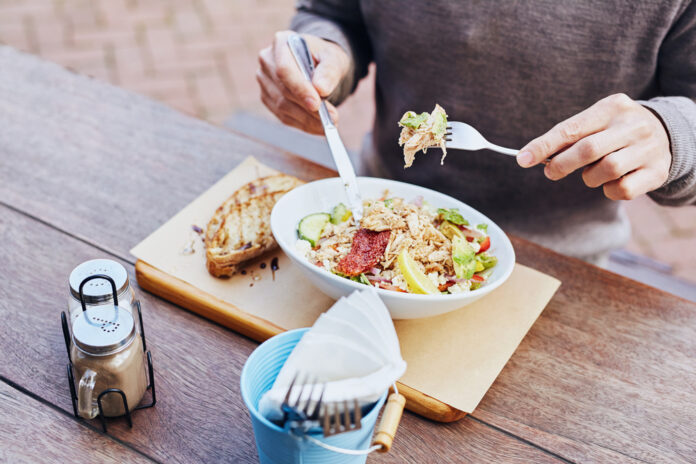
You’ve probably heard it mentioned that breakfast is the most important meal of the day. But what about lunch? Is it okay to skip it, or does it also hold significance? The truth is that everyone needs to eat lunch every day. It supplies nourishment and energy to keep the body and mind functioning effectively throughout the afternoon.
Making your own packed lunch at home gives you control over the foods and components that go into it. If that’s not an option, you can also enjoy a healthy lunch at a restaurant if you follow a few guidelines.
Most of us need to consume more dietary fiber, fruits, vegetables, and oily fish while reducing our intake of salt, sugar, and saturated fat. You may save money and work toward these objectives by packing a healthy lunch daily.
What Should You Eat for Lunch?
Whole-grain foods, such as wraps, pitta pockets, rye crispbread, whole-grain pasta, rice, or noodles, should be the foundation of a wholesome, filling lunch.
To increase the feeling of fullness, try to incorporate lean protein, such as salmon or tuna, eggs, lentils, or chicken. To reduce the danger of food contamination, your packed lunch must be refrigerated if it contains certain foods.
It’s also important to add a variety of fruits and vegetables to your lunch. Consider an apple, a box of raisins, a small tub of fruit salad, carrots, cucumbers, or peppers.
What Might Happen if You Skip Lunch?
Some people believe they can get through the day without eating lunch, but complications could occur. If you skip lunch, it’s like going on a brief fast, and you can feel quite hungry, especially if your breakfast is inadequate.
Your body has evolved for survival, so if you skip meals for a prolonged period, you start to feel hungry and only think about food and your upcoming meal. This causes your performance at work to decline.
If you haven’t eaten, your brain’s only source of fuel, glucose, will be impaired in four to six hours. This is due to the liver’s glycogen stores, which contain glucose, depleting during this time. Glycogen is converted to glucose by the liver and released into the blood when blood glucose levels fall too low. However, if the body’s glycogen is exhausted, it must use less effective fueling strategies.
If you spend too long without eating, you can overeat when you get the chance. Essentially, skipping lunch will catch up with you and can make it more difficult for you to control your food and weight.
https://www.gpb.org/blogs/family/2012/07/26/the-importance-of-eating-lunch
https://www.eatthis.com/what-happens-body-skip-lunch/
https://www.livestrong.com/article/449208-why-is-lunch-so-important/


















